How Jacqueline Gold made Ann Summers a respectable brand
- Published
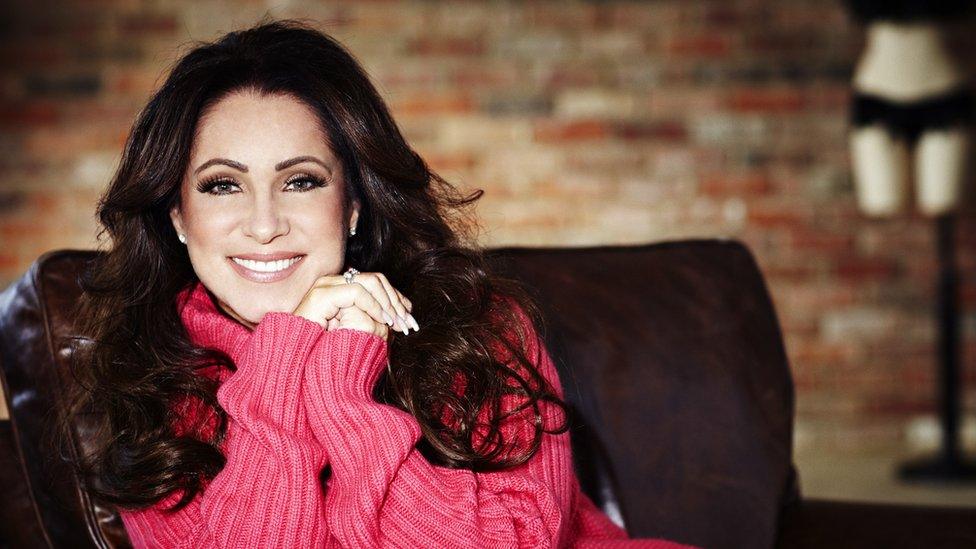
Ms Gold's plans to improve Ann Summers met with some opposition at the beginning
When Jacqueline Gold first proposed making UK lingerie and sex toys chain Ann Summers a lot more female friendly, she was rather taken aback by the reaction of one of the company's all-male directors.
She says: "One board member threw down his pen and said 'this isn't going to work, women aren't interested in sex'.
"Obviously it said a lot more about his sex life than it did about my idea."
This exchange took place back in 1981 when Ann Summers, part of a wider adult entertainment business called Gold Group International (GGI), was just a four-store chain.
GGI is still to this day owned by Ms Gold's father, David Gold, who is also the co-owner of West Ham Football Club.
Ms Gold had joined the family firm in 1979, aged 19.
After doing a number of basic admin jobs, her big idea was to try to transform the Ann Summers brand by setting up a new Tupperware-style party service solely for women, and introducing lingerie that was actually comfortable and flattering to wear.
Under Ms Gold's plan, a female Ann Summers representative would visit a woman's house with a range of lingerie and sex toys for the woman and her friends to see and potentially buy.
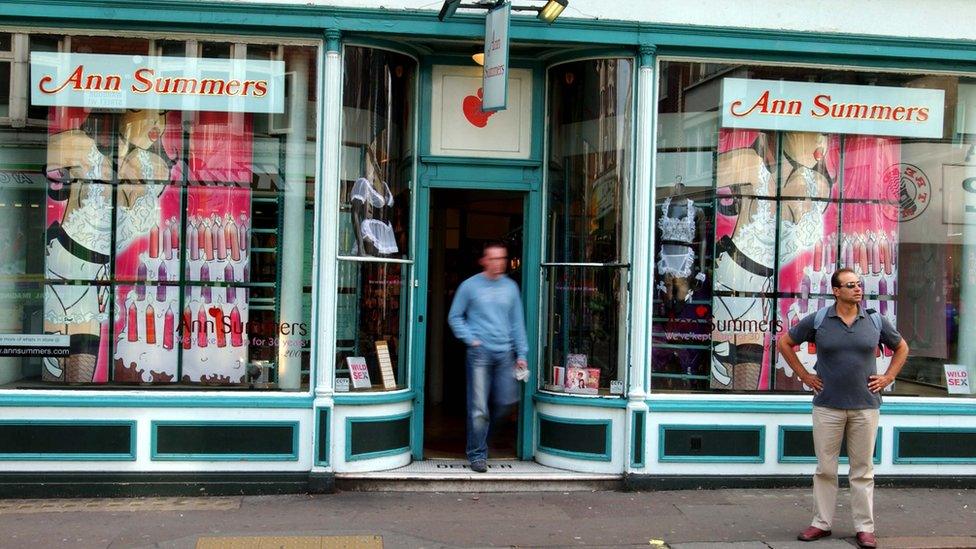
After proving the success of the parties, Ms Gold turned her attention to improving its stores
Ms Gold's central thinking was that it would open up a whole new market of women who would have been too embarrassed or unwilling to walk into an Ann Summers store.
Despite the reluctance of some members of the GGI board, Ms Gold was given the go-ahead, autonomy and funding.
The parties were an immediate hit, and within a year Ms Gold has signed up 500 party organisers.
With the party side of the business then continuing to see its turnover grow at more than 20% every year, Ms Gold started to invest the money into building a network of new stores.
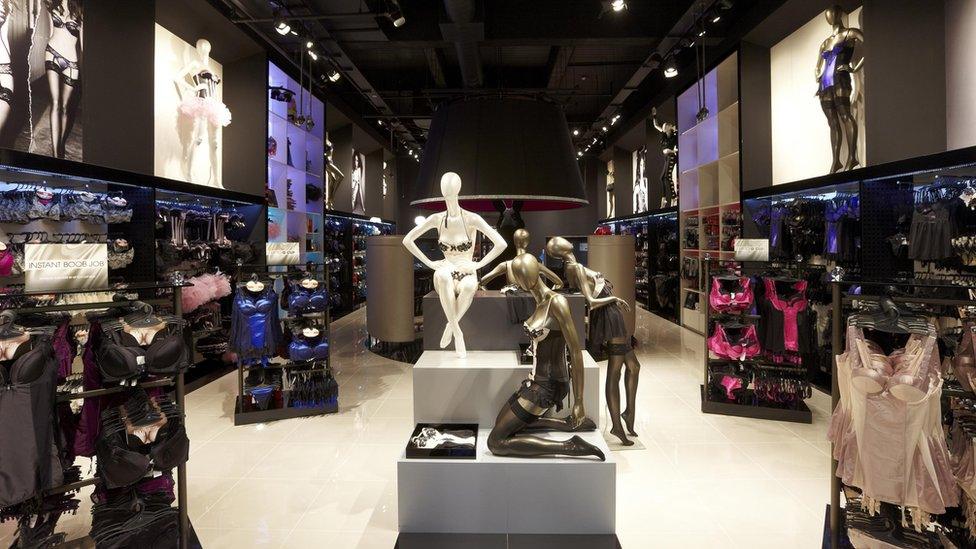
The company is currently rolling out a store revamp
Again aimed at women, the shops were to be a world removed from the grubby, backstreet sex shops of old. Instead they were to be clean, bright, and located on High Streets. The aim was for them to be socially acceptable.
Today Ann Summers has 140 stores across the UK and Republic of Ireland, and an annual turnover of £140m ($215m). Meanwhile Ms Gold, 55, who was formally made Ann Summers' chief executive in 1987, has a personal wealth estimated at more than £500m.
She says: "When I joined Ann Summers its customer profile was only 10% women, today it remains 100% women going to our parties, and 80% women to our stores.
"I always say that I have taken the company from the raincoat brigade to a female institution."
'Gut feeling'
With no business qualifications, or prior experience of running a company, Ms Gold says she had to rely on her "gut instinct" when it came to making decisions in her early years.
She adds: "When you are younger you just do things so differently. You'd think, 'I don't know this, I don't know that', but you just get on with it, and I worked really hard.
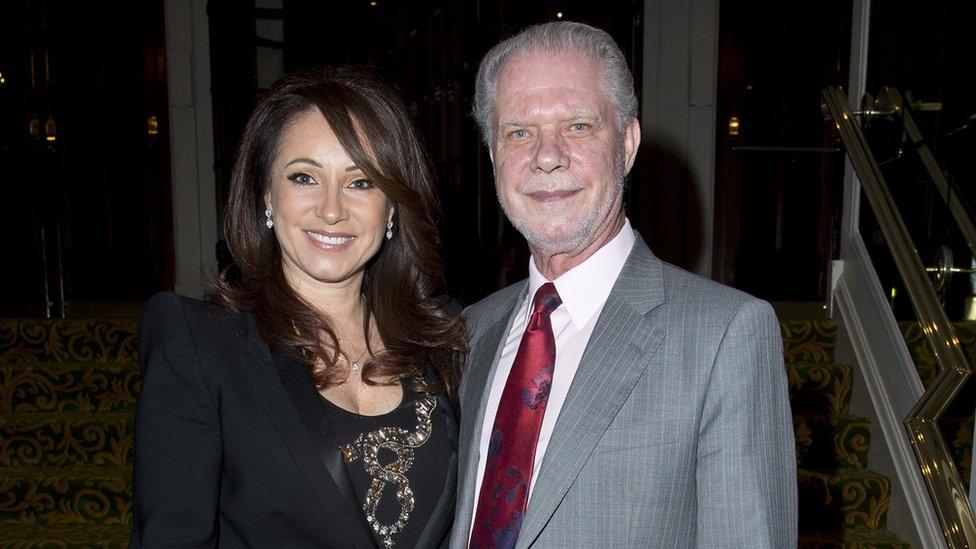
Ms Gold says that she has a close relationship with her dad
"We were growing really fast, and of course we had lots of teething problems.
"One mistake was to throw people at problems because we didn't have the money for a strategy, and I wasn't savvy on how to put a proper business plan together.
"Instead it was all my own gut feeling, and having to rely on feedback from my customers, which at the time I thought was a disadvantage, but any business leader will now tell you is an advantage."
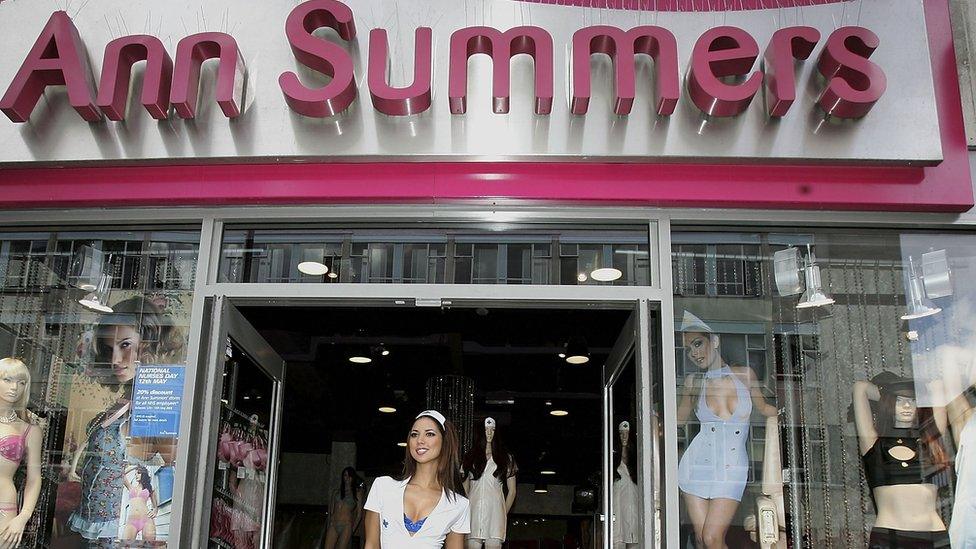
The stores have seen sales rise again in recent years after the end of the recession
Key problems along the way at Ann Summers have included being unable to source sufficient supplies to keep up with demand, which ultimately forced the company to source all its lingerie from China instead of the UK, says Ms Gold.
"The sex toys have always come from Hong Kong, but I used to be proud to say our lingerie was made in Britain," she says.
"Unfortunately we ultimately had to switch to China because the suppliers in this country just could not cope. [By contrast] in China they are so set up for huge orders."
The business also had to put up with copycat companies along the way, but Ms Gold says she was able to see them off by focusing on offering both better quality products and customer service.
And she has successfully fought against regulatory constraints against the business, such as winning a 2003 court case against the UK government to allow Ann Summers to advertise for staff at job centres.
'Amuses me'
Although Ann Summers' bricks and mortar stores were affected by the last recession, with a few closing, sales have since recovered. At the same time, online turnover has continued to rise strongly.

Ms Gold's father is the co-owner of West Ham Football Club
Ms Gold says the parties part of the business also remains popular, especially for women over 35, while those aged 18 to 25 are the primary customers of the physical stores.
While still a very much hands-on chief executive, in her spare time Ms Gold likes to mentor other female entrepreneurs, and lobby the government to help improve gender equality in business.
But how does she respond to any suggestion that she is only successful because of her father giving her the top job at Ann Summers?
"That amuses me," says Ms Gold. "When I'm asked that question I say that if it wasn't for my success at Ann Summers he wouldn't have been able to buy two football clubs - Birmingham City and [then] West Ham.
"I'm glad in my own indirect way to have played a big part in that... but I built up Ann Summers on my own."